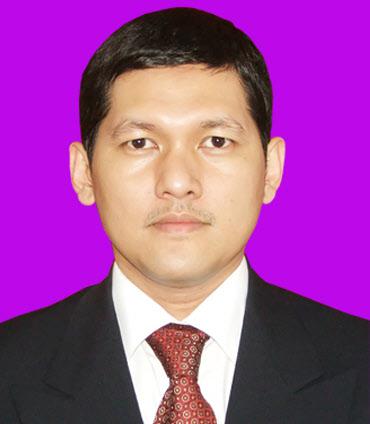
Dr. Peri Akbar Manaf, B.Sc., MBA.
Dr. Peri Akbar Manaf, B.Sc., MBA. is currently working as the Deputy Head of School of Business Management at Binus Business School. He has been teaching for undergraduate to graduate program specifically in the subject of Marketing, Retailing, Ethical Marketing, Management Strategic and Organizational Behavior.
Before joining Binus Business School, for 17 years Dr. Peri had been responsible in diverse finance application and field operation, retailing and strategic marketing in different businesses locally and internationally.
Case Document
[CASE STUDY] FILM PIRACY IN INDONESIA: HAVE ACTIONS AND REGULATIONS TAKEN BEEN EFFECTIVE?
[CASE STUDY] PALM OIL CONTROVERSY
Palm oil is one of the world’s most produced and consumed oils. This cheap, production-efficient and highly stable oil is used in a wide variety of food, cosmetic and hygiene products, and can be used as a source for biofuel or biodiesel. Most palm oil is produced in Asia, Africa and South America because the trees require warm temperatures, sunshine and plenty of rain in order to maximize production. In Indonesia, PT Perkebunan Nusantara as one of the companies owned by Government who specialized operating the palm oil production was challenged by the controversial cases in Sumatra. The case arises after the land clearing activities for the palm oil plantation that caused haze spread throughout several countries in Southeast Asia.
The land clearing cases in Sumatra island causes multiple adverse impacts to the environment, surrounding society, and to the business, itself. The 2015 Southeast Asian haze was an air pollution crisis affecting several countries in Southeast Asia. It was caused by PTPN from illegal slash-and-burn practices to open new palm oil plantation due to land clearing, principally on the Indonesian islands of Sumatra and Kalimantan, which then spread quickly in the dry season. This case has been the worst disaster not only for Indonesia but also other countries surrounded.
[CASE STUDY] PROMISES FACEBOOK WITH PRIVACY USERS
Facebook was released on February 4, 2004 by Mark Zuckerberg along with 4 other friends such as Eduardo Saverin, Andrew McCollum, Dustin Moskovitz and Chris Hughes.
Since 2004, Facebook has introduced some of the features contained in the website. The News Feed feature introduced in 2006 allows users to communicate and view their friends' activities on the website. It also allows for direct advertisement to the user's News Feed. In 2007, Facebook introduced the Beacon feature, which collects data about its user activities, focusing on the habits of user shopping activities.
Beacon Tool is used to track user's search data and purchases from partner sites, Facebook then broadcast this information to the user's network. No need to wait too long, this feature reaps a lot of controversy and protests from the online community. Many communities believe that the Beacon Tool is a privacy violation and a user agreement violation by the company. The Beacon Tool records Internet activity of Facebook users and sends this activity back to Facebook which then publishes across the network of Facebook users. The Beacon Tool is applied to all Facebook users by default.
[CASE STUDY] PERTAMINA OIL SPILL
The world community faces unprecedented ecological challenges in the 21st century, including climate change, resource scarcity, and threats to biodiversity. A critical task in coming decades for government policymakers, civil society organizations, corporate leaders, and entrepreneurial innovators will be to find ways to meet simultaneously both economic and environmental goals.
PERTAMINA has been awarded two platinum awards in the CSR Award (ICA) 2017, and an Appreciation Award presented by Sindo News Media for conducting CSR in the same year. However, PERTAMINA is also linked to controversial cases, such as the devastating oil spill in Balikpapan Bay in 2018 due to a leaked oil pipe. This is not a surprising news, as PERTAMINA allegedly experienced a leak from its oil pipes previously, in the year of 2004 and 2017.
The PERTAMINA oil spill case in Balikpapan Bay causes multiple adverse impacts to the environment, the surrounding society, and to the business itself. The ecological damage itself is estimated to be US $8.27 billion. The spill is said to be Indonesia’s worst environmental disaster from the last ten years. How can PERTAMINA manage environmental and business sustainability by reducing ecological damages and promote sustainable development? More importantly, how can the government help impose laws, regulations, and sanctions to help support environmental sustainability?
